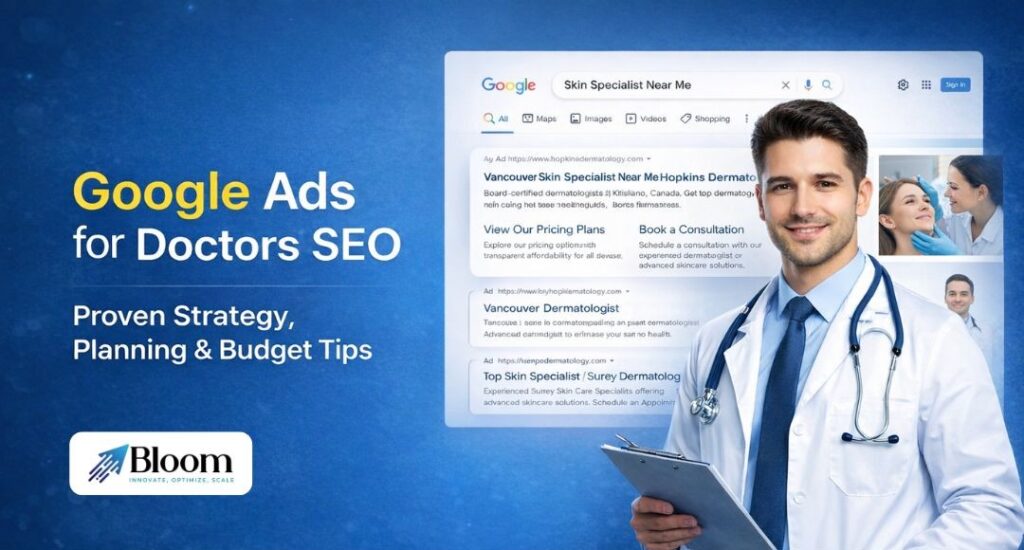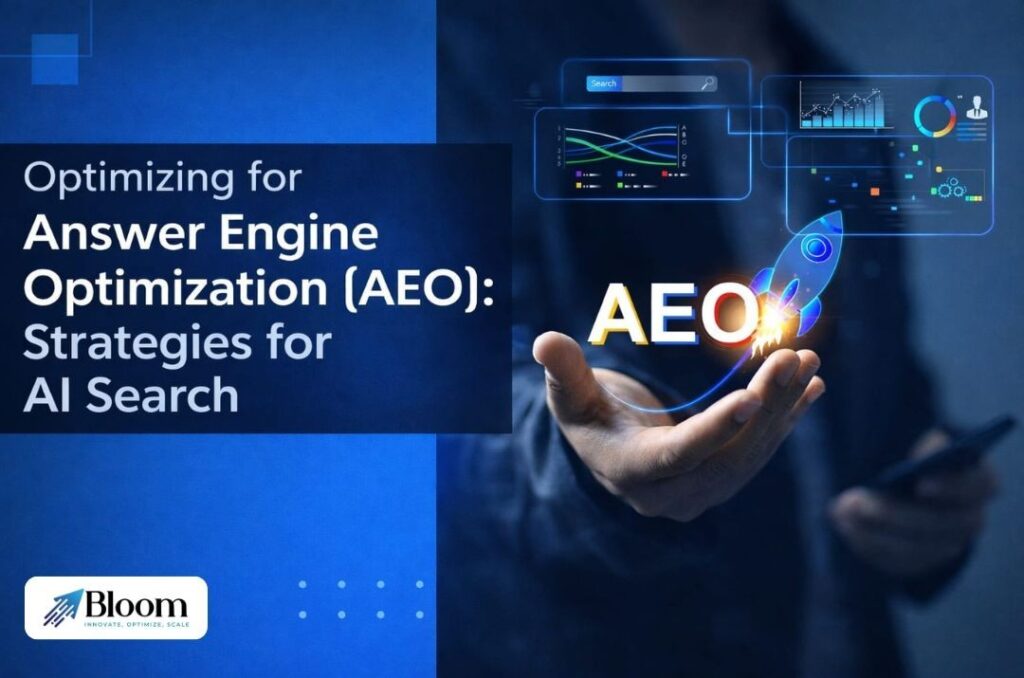The real estate industry is not only moving, but it is moving at a breakneck speed. In the last three years, the industry has changed more than it had in the previous ten years. Agents who used to do little more than slap a “For Sale” sign on a yard and hold open houses on weekends now find themselves having to carry out virtual tours, social media advertising, and use of data for lead management if they want to remain competitive. The transformation of the market towards a digital one is what has prompted a need for a robust digital infrastructure – which is something that even the most experienced brokers can now get from a real estate digital marketing agency to enhance their online presence.
Year 2025 is a milestone. The discovery of homes through the use of immersive visual content, and hyperlocal targeting powered by smarter data, are just some of the ways that buyers are getting homes while the trust that agents get is also moving to a different level. I have talked about the top five real estate digital marketing trends of 2025 in great detail below. You will find practical insights, up-to-date statistics, and examples with each trend that will help you stay ahead of the curve.
Table of Contents
ToggleTrend 1: Power of Visual Content and Immersive Experiences in Real Estate
Real estate has always been a visual business, but 2025 takes those visuals from “nice-to-haves” to must-have selling tools. It’s not enough anymore to have a dozen photos and a property description; people want an experience of a home even before physically setting foot in it.
The rise of high-impact visuals
A few outstanding statistics really put into perspective how modern home shopping is influenced by visual content.
- Listings with videos drive 403% more inquiries.
- 61 percent of the agents now use drones, and nearly half hire professionals to operate them.
- Properties with professional photography sell 30% faster and get nearly 3 times more inquiries.
- 90% of buyers prefer listings that come with video tours; 95% are sure to call about such properties.
- 60% of the time that buyers spend on a listing is on the photos, and only 20% is on the property description.
The message is clear: more than anything else, buyers at the initial discovery phase care about visuals.
Virtual tours and 360-degree walk-throughs change expectations
Most competitive markets are now expecting panoramic walkthroughs and 3D virtual tours, which give buyers, especially those out of state or international, an opportunity to screen a home from anywhere. This view bridges convenience and authenticity to help buyers perceive the room flow, natural lighting, and true scale without having to be there.
The evolving role of augmented reality
Although AR is still in its infancy, 2025 has seen an increased appetite for features such as:
- Dropping in virtual furniture
- Test paint colors
- Visualize renovations
- Real-time switching of floor styles
Picture a buyer standing in an empty living room, using their phone to see how their old couch fits or what a marble countertop would look like. Immediately, there’s an emotional connection—and often, that means faster decisions.
Visual content beyond listings
The modern agent does not stop at the MLS upload; they repurpose visuals across:
- Instagram Stories and Reels
- YouTube walk-throughs
- Facebook property spotlights
- Publishing the market update on LinkedIn
This strategy is all about building visibility and warming your audiences well before they ever schedule a showing. Visual content remains one of the strongest differentiators in an increasingly noisy online environment.
Trend 2: Hyperlocal targeting and personalized communication in real estate
Real estate has never been a “one-size-fits-all” proposition, and the year 2025 truly sealed that reality. What buyers want is local relevance: agents who understand not just the home, but also lifestyle, school district, traffic patterns, hangout spots on weekends, and vibe of the community.
Hyperlocal targeting is at the fore
Search behavior reinforces this shift:
- Searches for “real estate agent near me” have grown 41x since 2015.
- Approximately 14,000 searches are made every month for local agents.
- Purchasers place a high value on the practitioner’s local reputation; 74 percent of purchasers choose practitioners who are well-connected locally.
- One-third of sellers still find their agents through personal referrals.
Neighborhood-expert positioning is no longer just desirable; it’s a pre-requisite.
H3: Personalized digital communication
Real estate was one of the early industries to take up SMS marketing, and that trend continues into 2025:
- 94% of agents utilize text messaging for primary communication.
- 91 percent still rely heavily on telephone calls.
- 89% use email.
- 72% use data analytics to inform personalized ad campaigns.
Personalization drives communication and trust as buyers seek out real-time updates, recommendations related to their needs, and property alerts.
Audience targeting
Today, digital marketers segment audiences according to parameters such as:
- First-time buyers
- High net-worth buyers
- Investors
- Specific ZIP codes
- Relocation clients
- Age groups or demographics
Interest patterns
These segments ensure that marketing budgets reach the right people at the right time, which is what matters most in the landscape with increased restrictions on privacy.
Privacy and compliance
New standards by the National Association of REALTORS® for data usage, which in turn means:
- No ambiguous data collection
- Clear consent for all user interactions
- More regulation around targeted advertising
Those agents who adapt more quickly maintain both trust and compliance intact, with their competitive advantage sharpening all the time.
Trend 3: Social Media Usage & Building Presence in Real Estate
Social media is still one of the most powerful lead-generation engines in real estate. Traditional platforms may still dominate, but new formats drive huge engagement—especially those with videos.
Key social media statistics in 2025
- 82% of real estate businesses use social media for marketing. Facebook leads at 87%, followed by Instagram at 62%, LinkedIn 48%, and YouTube at 25%.
- YouTube leads in video sharing at 88%
- 63 percent of agents use videos to showcase listings.
- Social videos drive 1,200% more shares than images or text posts alone.
The rise of short-form video
TikTok, Reels, and YouTube Shorts have opened up avenues to a much younger audience, together with the “casual browsing” buyer. Agents film:
- Quick walkthroughs
- Neighborhood spotlights
- Q&A sessions
- Behind-the-scenes footage
- Market updates
- “A day in the life” snippets
These formats work because consumers are increasingly favoring authenticity over slick, packaged marketing.
Live content builds trust in real time
Live walk-throughs, virtual open houses, and interactive Q&A sessions let agents foster transparency: any viewer can ask about room sizes, renovation potential, or neighborhood safety—and get answers instantly.
This unscripted approach humanizes the agent and deepens the “know-like-trust” factor.
Storytelling brand building
Agents with strong online brands share in common:
- The story of homes
- Customer testimonials
- Closing day memories
Community events
- Personal Introductions
It is the content which makes them relatable, not just accessible, and extends their online reach well beyond property listings.
Trend 4: SEO & Local Search Take Center Stage in Real Estate Discovery
While visual content is what attracts buyers, SEO helps buyers find listings in the first place. Since 46% of all Google searches are local, strong search visibility is crucial in online real estate discovery.
Why SEO matters more than ever
- 93% of local searches show Google’s Local Pack at the top.
- 91.5% of users never click past page one.
- Long-tail keywords create 70% of page views.
Real estate has an outstanding average conversion rate of 4.7%, among the highest across industries.
Organic search delivers 3.2% conversions, beating out paid search at 1.5% and email at 1.4%. This will prove that ranking for the right terms pays dividends in lead generation, especially for local and intent-driven terms.
And here comes the game-changer: localization
Buyers aren’t just searching for generic terms like “homes for sale” anymore. They’ve gotten hyper-specific:
- “2BHK in Bandra West near carter road”
- “Flats in Noida sector 150 under 1 crore”
- “Houston Heights townhouses for sale”
Agents need to optimize their content around neighborhoods, micro-markets, landmarks, and lifestyle-based keywords.
The Power of Google Business Profile – GBP
GBP is arguably the most important free tool for visibility in real estate. A fully optimized profile boosts:
- Map rankings
- Local Pack visibility
- Trust and credibility
- Acquisition review
- Mobile discovery
Reviews matter, too; Google weighs them heavily. Consistent positive feedback will help agents maintain their ranking at the top of the results page.
Consistency and credibility
Having the same NAP throughout your web pages is a trust signal and will enhance your local SEO results.
Trend 5: Data analytics and CRM for effective real estate lead management
It is no longer a lead generation challenge; it is more about effective lead management. The huge inflow through social media, websites, ads, and referrals needs some order and strategy. That is where CRMs come into play, along with analytics tools.
Why CRMs will be indispensable in 2025
CRMs used by agents show a 41% increase in conversions.
- 54% say AI helps identify high-quality leads.
- 89% of real estate leaders believe that AI is required for them to remain competitive.
- 52% identify social media as the top source of quality leads, followed by CRM integrations at 32%.
CRMs allow agents to:
- Lead tracking source
- Automate follow-ups
- Segment audiences
- Scoring leads
- Management of communication timeline
- Personalization of marketing messages
Analytics to Understand Customer Behaviour
Every digital touchpoint offers insight:
- Which search terms deliver the highest-converting leads
- How long visitors stay on listing pages
- Most engaging virtual tours or videos
- Bounce rates on key pages
- Mobile vs. desktop behavior
This kind of data helps agents further fine-tune their activities: discard campaigns that don’t work and reinvest in the channels that bring in value.
Lead attribution drives smarter spending
Using UTMs and CRM integrations, marketers are able to track the following:
- First action taken by a lead
- What they interact with
- How many touchpoints occurred before conversion
- Which platform generated the final lead
That clarity also prevents overspending and helps agents optimize budgets with confidence.
Investment in technology keeps on rising
In fact, this is a good indication that the rate of digital adoption is not going to slow down anytime soon, considering almost a quarter of Realtors spend upwards of $500/month on technology tools.
Key Takeaways
Going into 2025, real estate finds itself amidst a digital ecosystem in which visibility, relevance, and trust are usually built much before any buyer schedules a physical visit. A few powerful shifts shape the landscape:
- Visual-first marketing replaced static listings with immersive experiences. High-quality videos, 3D tours, and drone shots ceased to be optional; they are the new ticket to capturing buyers’ attention.
- Local-first search behavior driven by buyers who want neighborhood-level accuracy. Today, micro-market optimization, hyper-local keywords, and community-oriented content drive both search rankings and buyer decisions.
- Social media-driven discovery: Exposure of listings is in short-form video, creator-style content, and platform-native storytelling. Agents who show “behind the scenes” gain the trust of people much faster than agents who merely post listings.
- By personalizing touchpoints through SMS, segmented email workflows, AI-powered recommendations, and CRM-triggered alerts, you can create a sense of immediacy and care that buyers increasingly expect.
- Agents sharpen their budgets, enhance targeting, and manage leads in data-driven decisioning. Analytics and CRMs have been the backbone for modern lead management.
Those agencies which are leaders in the implementations of immersive visuals, hyper-local relevance, robust SEO systems, and structured CRM workflows are always the ones that are outperforming others who are still holding on to the old, manual ways. Switching to digital-first is not an upgrade; it is the new baseline with which you can ensure further growth.
The market is not just moving online—it is already there. Winners are the pros who show up where buyers are spending their time: on their mobile phones, in their social media feeds, inside search results, and across interactive platforms. The agents who change today are not merely adapting; they are making their business indestructible in a rapidly changing industry where digital fluency is becoming the strongest competitive advantage.
Frequently Asked Questions (FAQs)
H3: 1. Which online channels are best for real estate advertisement in 2025?
A combination approach works best: These include, but are not limited to, Facebook, Instagram, TikTok, and YouTube.
- Intent-driven search on Google Ads
- Retargeting campaigns
- Video-based promotions
Short-form video leads awareness, while targeted Google search captures high-intent buyers and sellers.
2. How much should a real estate agent invest in digital marketing?
Of all revenues, it is customary to allocate a share of 10–20% to marketing. On average:
- Paid social: $300-$1,000/month
- Google Ads: $200–$800/month
- Video creation: $150–$500/month
- Tools & software: $50–$300/month
Return on investment should be tracked. Spending should be determined through cost per lead, conversion rates, and time-to-close.
3. Digital marketing mistakes a real estate agent should avoid:
- Low-resolution images
- No claiming or optimizing of Google Business Profile
- Being active on too many platforms at once
- Lack of performance measures
- Online reviews ignored
Small oversights have a great impact on visibility and trust.
4. How can real estate pros establish trust online?
- Maintain mobile-friendly, intuitive websites
- Be active on Social Media
- Prompt response to queries
- Share authentic, face-to-camera videos
- Keep Google and directory listings up to date
- Encourage and respond to reviews
Trust builds from consistency and authenticity.
5. What are the key metrics to track in real estate digital marketing?
- Engagement rates
- Click-through rates
- Video view duration
- Bounce rates
- Time on listing pages
- Lead source attribution
- Cost per lead
- CRM pipeline movement
- Conversion events like showings and closed deals
These metrics provide full-picture views about performance and customer behavior.
Final Thoughts
2025 presents an opportunity of monumental proportions for agents who are willing to open their arms toward the new digital ecosystem. Buyers want speed, transparency, immersive content, and local expertise—all seamlessly delivered through online experiences. Whether you manage your digital strategy in-house or rely on a real estate digital marketing agency, staying ahead of these trends positions you to attract better leads, close deals faster, and build long-term brand equity. Real estate may be rooted in brick and mortar, but its future is undeniably digital.








Rahul M.
B2B Service Provider